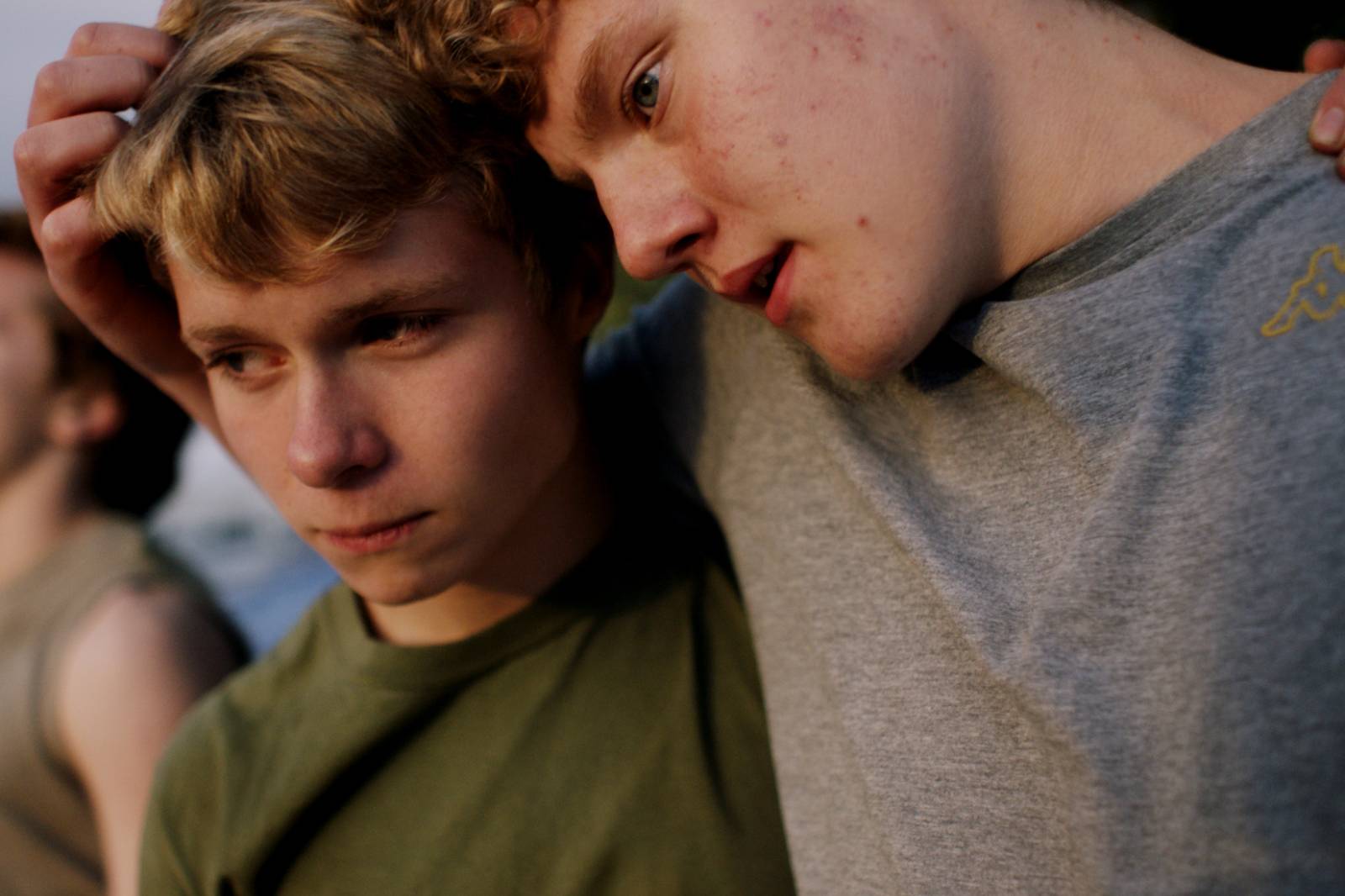Four young boys come of age in Guðmundur Arnar Guðmundsson’s textured yet maudlin kitchen-sink drama Beautiful Beings. Guðmundsson’s sophomore feature (and Iceland’s Oscar submission) oddly mashes together the bleak nihilism of a Larry Clark feature with flashes of magical realism, never really synthesizing the two competing styles. While compelling in individual scenes, especially as the boys navigate their increased anger at the world, Beautiful Beings ultimately whiplashes between too many ideas and subplots to create a coherent thematic through line.
We begin following Balli (Áskell Einar Pálmason), a young boy who is brutally bullied at school. After a particularly violent incident in which he is beaten with a tree branch, he makes the local news and is forced to wear a face mask to cover up his injuries. At this point the narrative switches to Addi (Birgir Dagur Bjarkason), the one who assaulted Balli. Addi takes an interest in the quiet boy, folding him into the group. Rounded out by the violent Konni (Viktor Benóný Benediktsson) and more docile Siggi (Snorri Rafn Frímannsson), the four boys waste away their days fighting others, doing drugs, watching porn, and looking for any way out of their mundane existence.
Narrated to an extent by Addi, the film connects the four boys through their dysfunctional homes. Konni’s father beats him, Balli’s mother is never home, and Addi’s drunken father has effectively abandoned his family. They find solace in each other but, as these tales go, Konni begins spiraling into increasingly violent tendencies, dragging the others into a series of brutal beatings and sexual assault that fractures the group.
These shifts in POV speak to a larger structural problem: Beautiful Beings never coheres around a fully realized character. We move from Balli to Addi without reason, and Addi’s voiceover is effectively abandoned midway through. Why Addi feels the need to take care of Balli is never fully explored either, though there are hints at homoeroticism in the group that are never fully foregrounded.
Addi’s mother senses shifts in her son but rarely does anything to intervene with their wayward tendencies. In fact, the lack of parental oversight is both a feature and a bug of this narrative: if it helps explain how these boys have become so lost, it also strains credibility when they go from skirmish to skirmish with no repercussions. Balli is also effectively orphaned—his mother goes on long trips, leaving the young boy to fend for himself.
Framing many of these scenes are a series of dreams that attempt building out Addi’s interiority. Yet these fragments are rendered in a frustratingly obvious way. At one point Balli and him fly off a building, falling to the ground with velocity. In another he trips on mushrooms and is able to shift rock formations along the Icelandic coast. It’s an obvious metaphor for his inability to change his surroundings.
When Guðmundsson’s and his cinematographer Sturla Brandth Grøvlen slow down, fixating on the boys’ interactions, the film finds a credibility its other sections are lacking. The roaming camera mainly frames Balli and Addi in close-up, Pálmason and Bjarkason giving layered performances that capture the conflicting emotions of youth. Towards the end we get fuller pictures of both of their homes when their fathers show up. While this thread culminates in a predictably violent way, it nevertheless helps draw connections between two characters who, on the surface, couldn’t be more different.
Once Beautiful Beings reaches its denouement, Guðmundsson’s script blinks, abandoning its previous somber tone for something more uplifting. It feels out-of-place for a film so fixated on the mundanity of violence, suggesting the frenzied aggressions these boys felt were just part of the cycle of growing up. Such shift speaks to the key flaw: its odd jumble of hope and pessimism. While Guðmundsson displays a talent for creating a lived-in feel for characters, the narrative eventually betrays that naturalism.
Beautiful Beings is playing in select theaters in NYC and opens on Friday, January 20 in LA.

